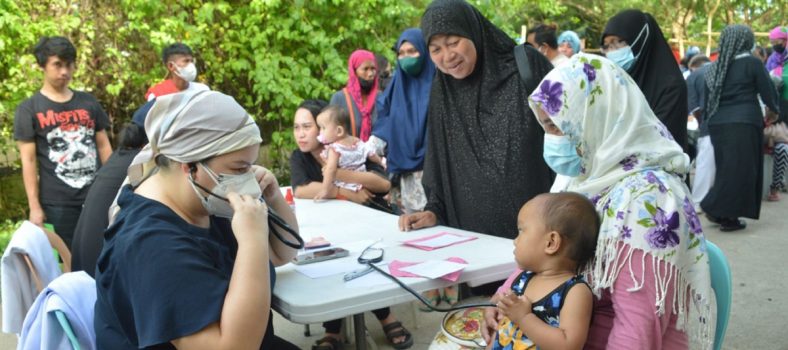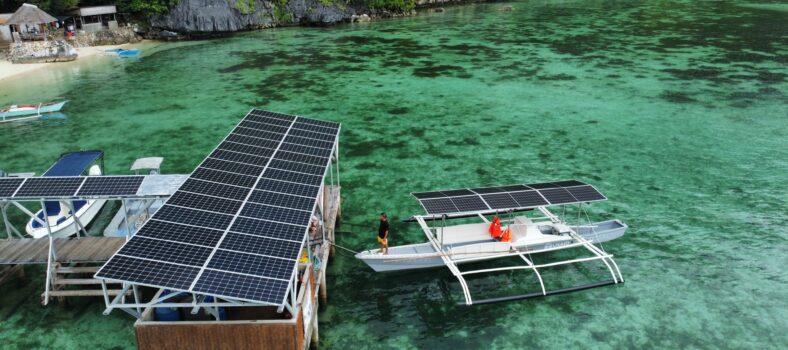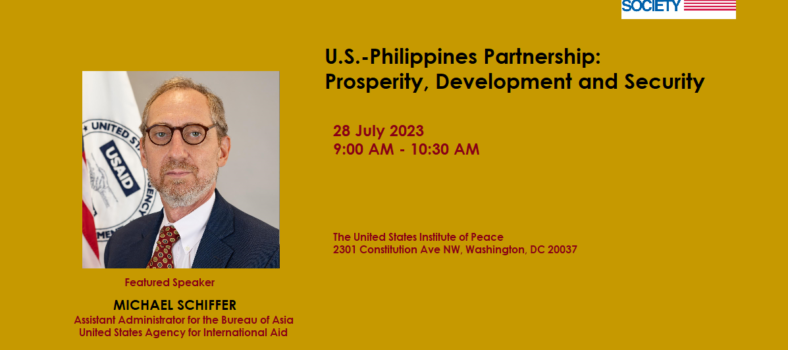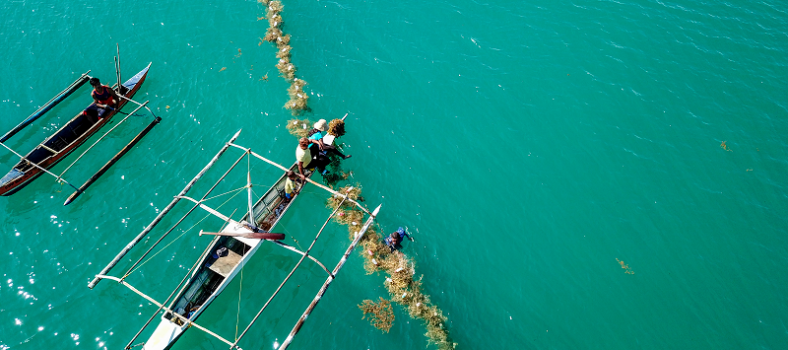COP28: U.S.-Philippines Cooperation and Strategies to Combat Climate Change
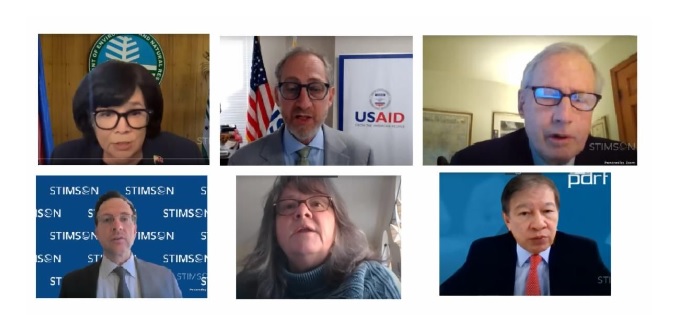
The December 12 program, “COP28: Climate Challenges and Opportunities in the Philippines,” addressed 1) Philippine equities at the Climate Conference and key-takeaways, 2) USAID participation at COP28 and engagement with the Philippines, and 3) an on-the-ground view of climate impact and mitigation efforts in the Philippines. Headliners included Environment and Natural Resources Secretary Antonia Yulo-Loyzaga and USAID Assistant Administrator for Asia Michael Schiffer.
DENR Secretary Yulo-Loyzaga who led the Philippine delegation in Dubai, underscored the principles of rule of law, multilateralism, and equity as the archipelagic nation participated in five major negotiating work schemes, including loss and damage, climate finance, adaptation, global stocktake, and just transition. At COP28, the Philippines offered to host the critical Loss and Damage Board. To combat the complexities and dynamic impact of climate change, the Secretary emphasized strategies that incorporate integrated mitigation and adaptation approaches within the “Ridge to Reef” framework and synergies from intergovernmental engagement and partnerships including with the USAID.
USAID AA Michael Schiffer gave an overview of U.S. priorities at COP28 aimed at deepening and raising the quality of engagement with partners to reach net-zero goals and a 1.5 degree Celsius limit in global warming. USAID and the Philippine government cooperate on supporting the Philippines clean energy future agenda that includes a mix of solar and wind, nuclear, and other emerging technologies, along with the necessary technical skills and capacity building. The partnership also advances nature-based solutions toward greater resilience for Filipinos noting that climate change also affects food security and health issues. Working with Philippine counterparts, AA Schiffer emphasized the importance of conservation policy frameworks that also address planning and zoning issues and data analysis for building climate resilient cities.
Dagupan City Mayor Belen Fernandez gave a frontline perspective of the impact of climate change straining the city resources, infrastructure, and marine ecosystem. An uptick in extreme weather patterns hitting Dagupan City has led to flooding of homes, water intrusion into agricultural land and groundwater wells, and loss of potable water resources. Dagupan City also struggles with limited solid waste and wastewater infrastructure. Mayor Fernandez welcomed the Stimson Center’s Climate and Ocean Risk Vulnerability Index or CORVI as a tool to pinpoint high risks in coastal cities based on ten indicators covering ecological, financial and political risks. The data-driven CORVI assessment tool can help Dagupan City officials on climate finance funding, including the Green Climate Fund and the Loss and Damage Fund.
Tracy Rouleau, an economist and co-author of CORVI, described how the tool “integrates economic, social and environmental data to produce a holistic understanding of the most critical climate vulnerabilities along with recommendations on how to reduce those vulnerabilities and improve resilience.” She found that among the most striking finding from the Dagupan City CORVI Assessment was the number of high risk indicators. The study recommended improving solid waste management and constructing a wastewater treatment plant, solving the open dump site problem, continued education on sustainable fishing practices, and creating natural barriers.
Rene “Butch” Meily, President of the Philippine Disaster Resilience Foundation, discussed how their concept from disaster relief transformed to a sustainable model of livelihood assistance, supporting small and medium scale entrepreneurship, and alternative means of income. Following Super Typhoon Haiyan in 2013, PDRF built the world’s first Emergency Operations Center operating nationally through private sector funding providing much needed monitoring of weather conditions. As one of the implementing partners for the USAID Climate Resilient Cities program, PDRF will provide GIS workstations that enable cities to track flooding and build local operation centers to help prepare for future emergencies and disasters.
Following the presentation moderated by Executive Director Hank Hendrickson was an open forum with Stimson Center Program Director Brian Eyler moderating. For details and to view a full recording of the program, please click below. The event was co-hosted by the US-Philippines Society and Stimson Center’s Southeast Asia Program.

